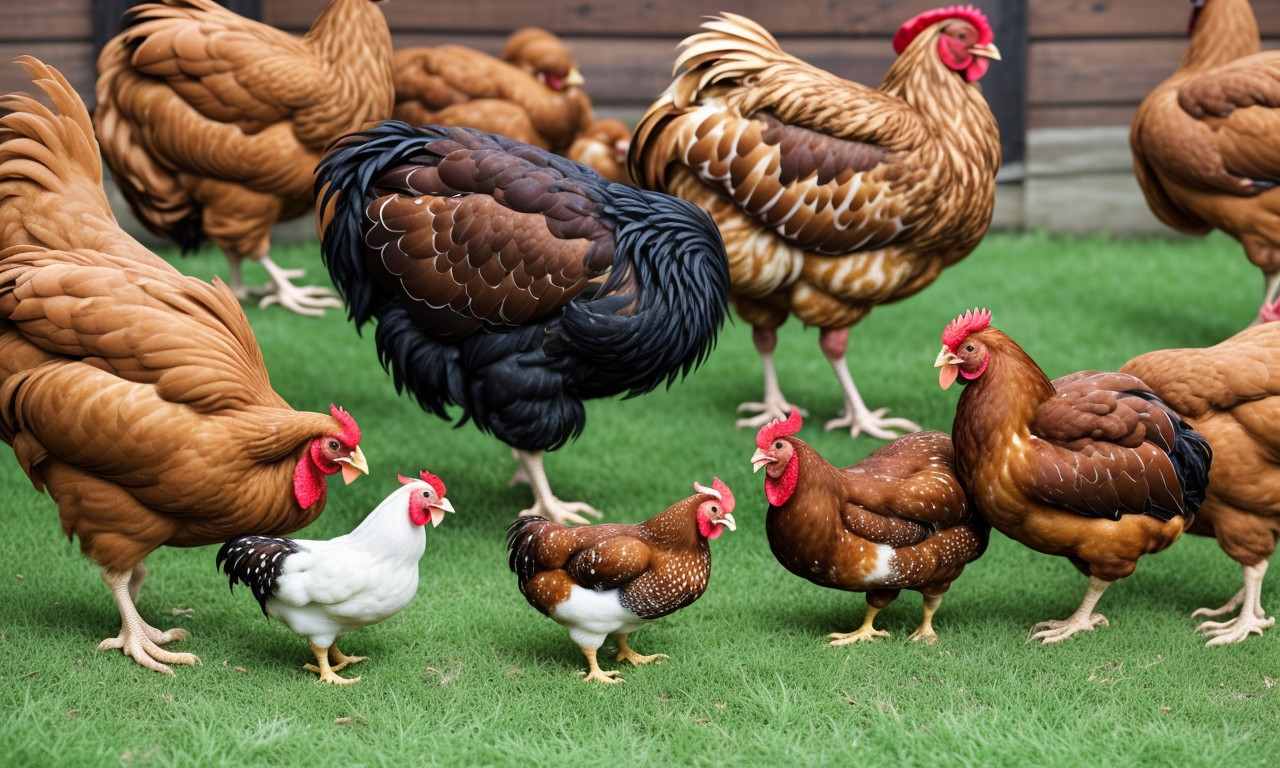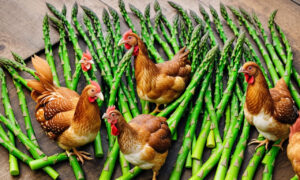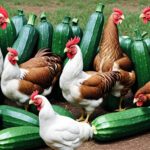When it comes to the dietary habits of our feathery farm friends, the question "Can chickens eat cookies?" surfaces with charming regularity among poultry owners. While at first glance it may appear a tickling curiosity or a quaint query, there’s a genuine need to understand the effects of human food on chicken health. As poultry enthusiasts look to provide the best care for their flocks, they may wonder if the cookies in their pantry could also double as treats for their birds. This comprehensive guide is crafted to shed light on the myths and facts surrounding chickens and their potential indulgence in cookies.
Understanding Chicken Nutrition Essentials
Chickens, much like any other living creature, require a balanced diet to maintain health and vitality. Before we delve into the specifics of chickens munching on cookies, it is essential to explore the nutritional needs of these birds.
The Building Blocks of a Chicken’s Diet
- Proteins: Essential for growth, feather production, and egg laying.
- Carbohydrates: Provide energy for daily activities.
- Fats: Important for energy and essential fatty acids.
- Vitamins and Minerals: Crucial for bone health, immune function, and overall well-being.
Understanding these nutritional requirements is fundamental when considering the introduction of any snack, such as cookies, into a chicken’s diet.
Can Chickens Safely Consume Cookies?
At the heart of our investigation lies the central query: can chick temperature chartens safely consume cookies? The answer is not as straightforward as a simple yes or no. Let’s crumble this topic into digestible facts.
Analyzing the ‘Treats’ Aspect
Cookies are generally considered treats for humans, often laden with sugar, fats, and artificial additives. From an ornithological perspective:
- Sugar: Excessive sugar can lead to obesity and other health issues in chickens.
- Fats: Too much unhealthy fat can disrupt a chicken’s nutritional balance.
- Additives: Artificial ingredients found in cookies can be harmful to chickens.
While an occasional nibble of a cookie may not harm a chicken, regularly including cookies as part of their diet is not advisable.
Considering the Type of Cookie
If poultry owners decide how to break a broody hen offer cookies to their chickens, the type of cookie matters significantly.
- Plain Cookies: Simple, unadorned cookies without chocolate or raisins might be safer in moderation.
- Chocolate Cookies: Chocolate is toxic to chickens, as it is to many animals.
- Cookies with Raisins or Macadamia Nuts: These are also dangerous and should be avoided.
Debunking Myths About Chickens and Cookies
Python internet lore has spun a myriad of myths about what chickens can and cannot eat. It is our job to separate the grains of truth from the chaff of fiction.
Myth: Chickens can eat anything humans can.
Fact: Chickens have different digestive systems and nutritional needs.
Myth: Sugary treats like cookies help chickens produce more eggs.
Fact: Sugary treats can lead to health issues and do not enhance egg production.
Armed with facts, poultry owners can make informed decisions about the occasional cookie treat.
The Impact of Cookies on Chicken Health
The impact of cookies on chicken health cannot be understated. While chickens can enjoy a varied diet, the content of the treats they consume can have lasting effects.
Weight and Obesity
Chickens are susceptible to weight gain, and obesity from feeding them high-calorie treats like cookies can lead to other health challenges such as:
- Decreased egg production
- Joint issues
- Difficulty in regulating body temperature
Potential for Toxicity
Certain ingredients commonly found in cookies can cause toxicity in chickens:
- Chocolate: Contains theobromine, which is poisonous to chickens.
- Xylitol: An artificial sweetener possibly lethal to birds.
Disruption of Normal Eating Habits
Feeding cookies to chickens can also disrupt their normal eating habits, leading to:
- Preference for treats over nutritious feed
- Imbalance in nutrient intake
- Potential for malnutrition
Balancing Treats with Nutrition
Treats can be part of a chicken’s diet, but it’s crucial to strike the right balance. Moderation is key, and healthier treat options include:
- Fruits: Such as apples and berries (in moderation)
- Vegetables: Like broccoli and carrots
- Grains: Cooked rice or pasta (sparingly)
Providing a varied diet within the chickens’ nutritional needs is the best way to maintain their health while allowing for occasional indulgences.
Alternatives to Cookies for Chicken Treats
Looking for healthier alternatives to cookies for your feathered friends? There are ample nutritious and delicious options to keep them clucking happily.
Healthy Snack Ideas
- Vegetable Peels: A great way to reduce food waste.
- Cooked Legumes: Protein-rich and suitable for chickens.
- Herbs: Fresh or dried, they can provide nutritional benefits.
DIY Chicken Treats
Creative poultry owners can craft their own treats at home, ensuring the ingredients are chicken-safe and healthy.
Responsible Treat Distribution
It’s essential to be responsible when offering treats, which involves:
- Limiting treat intake to 10% of the chicken’s total diet.
- Ensuring treats are fresh and free from mold or spoilage.
- Observing chickens for any adverse reactions after consuming treats.
Chickens and the Seduction of Sweets
Chickens, like many animals, may develop a taste for sweet treats, leading to a preference for cookies over their regular feed. A chicken’s health is paramount, so it’s vital to resist overindulging their sweet tooth.
The Risks of Overindulgence
- Increased risk of malnutrition
- Behavioral issues from nutrient-poor treats
- Harder-to-manage flocks due to uneven feeding habits
Educating Your Flock
Train your chickens to maintain a healthy diet by:
- Offering healthy treats so they don’t develop a taste for the unhealthy.
- Regularly providing a balanced diet to discourage picky eating habits.
Professional Insights on Chickens and Cookies
When in doubt, always consider the words of experts. Veterinarians specializing in poultry and experienced chicken farmers will generally advise against regularly feeding cookies to chickens for the aforementioned reasons.
The Veterinarian’s Perspective
Most vets will caution against giving chickens cookies as they:
- Do not meet the nutritional needs of chickens.
- Can cause immediate and long-term health problems.
The Farmer’s Wisdom
Experienced chicken farmers often share that the healthiest flocks are those fed a diet closely aligned with their natural eating habits.
Cookies and Chickens: The Verdict
Ultimately, while chickens may be able to physically consume cookies, it doesn’t mean they should. The occasional small piece of a plain cookie isn’t likely to cause harm, but cookies should never be a staple in a chicken’s diet. Instead, focus on providing a rich and varied diet that fulfills the nutritional requirements of your feathered flock for their well-being and longevity.
Emphasizing the Importance of a Balanced Diet
A balanced diet is the cornerstone of a healthy chicken:
- Should be primarily composed of quality commercial feed.
- Supplemented with a variety of safe, nutritious treats.
- Minimized in terms of sweet, fatty, or artificial snacks.
The Cookie Conundrum Conclusion
So, can chickens eat cookies? As a rare treat, perhaps. As part of their regular diet, definitely not. Prioritization of their nutritional balance and overall health will ensure your chickens live a prosperous and productive life, sans cookies.
Through the information laid out in this article, it’s become transparent that while the idea of sharing our sweet indulgences with our backyard chickens has an innocent appeal, the reality is that choosing alternatives aligning with their natural diet is the best way to express our care. It’s this blend of affection and responsible nutrition that keeps our coops contented and our chickens in peak condition.







